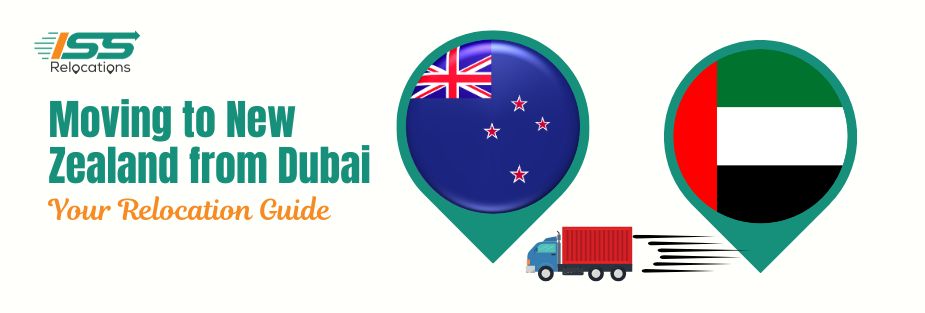
In the context of global mobility, the role of PTO is crucial
Due to fear of falling behind, less than half of U.S. employees use all their vacation days.
Increasingly stressed workers in the global mobility industry need paid vacation days as summer vacations approach. It is especially important to take a break during the busiest months for international relocations, May through August. Many employees fail to take advantage of their right to a certain amount of time off, despite being entitled to it.
According to a recent survey by the Pew Research Center, only 48% of U.S. workers take their full vacation entitlement. Half of those who don’t take additional time off claim they don’t need it (52%) or fear they will fall behind (49%). A quarter of respondents feel guilty about causing their colleagues more work (43%). Some employees worry that taking additional time off could jeopardize their advancement prospects (19%) or, at worst, lead to job loss (16%), while others are discouraged from taking time off (12%) by their managers or supervisors.
Most Americans are afraid of taking a long break because they have been conditioned to believe that being away from work is synonymous with laziness or the possibility of being replaced. In addition, we have been instilled with the belief that putting in more hours will result in greater rewards. We tend to prioritize work over other aspects of our lives in order to achieve more.
Private-sector workers in the U.S. receive 15 vacation days after working for five years, which increases to 20 days after 20 years of service, according to the Bureau of Labor Statistics. Research has shown that Europeans are less guilty about taking time off than their American counterparts, who generally receive more vacation days.
According to government data, roughly 80% of U.S. workers receive paid vacation. A recent Pew survey of more than 5,900 U.S. employees found that more respondents considered paid time off “extremely” important. It contrasted with those who expressed the same sentiment regarding employer-provided health insurance, retirement schemes, or paid family or medical leave.
Even though PTO is offered, employees will not take more vacation days. A mandatory minimum number of days off would be more effective.
In companies that prioritize their employees’ well-being, their employees will notice immediately. The reason for this is that such efforts are appreciated and recognized by employees.
The Significance of Paid Vacation Days in Enhancing Employee Experience
According to a study published by Future Forum, a research group supported by Salesforce Inc’s Slack Technologies, over 40% of office workers report experience work-related burnout. In contrast to their American counterparts, workers outside the United States suffer from higher burnout rates, counterbalancing the modest progress they have made.
The Future Forum researchers report that financial instability, apprehension about layoffs, and escalating stress have contributed to workplace unrest. Burnout is more prevalent among women and younger employees.
There are a number of regional factors that contribute to distress. As public-sector unions protest meager wage growth in the United Kingdom, widespread strikes have paralyzed the nation. As a result of the most significant inflation since 1981, the Japanese government has asked companies to assist their employees. The French government has proposed an increase in the retirement age from 62 to 64, which has sparked street protests.
According to a quarterly survey conducted by The Future Forum in the United States, the United Kingdom, Japan, Australia, Germany, and France, employees with greater autonomy over their work schedule and location during the pandemic were generally more satisfied, productive, and less likely to resign. Approximately half of those who indicated dissatisfaction with their flexibility also reported feeling burned out in a recent survey conducted toward the end of the previous year. In the upcoming year, workers with inflexible work schedules are twice as likely to say they will “definitely” look for another job.
A Slack executive who oversees Future Forum research, Brian Elliott, says flexibility is about giving people focused time rather than stressing about how many days of the week they have. Flexibility also improves a company’s culture, and every time I tell executives this, they’re surprised.”
Improved vacation policies can benefit global mobility workers. As well as enhancing employee retention, paid vacation days can mitigate burnout, increase employee involvement, and increase productivity.
Burnout leads to diminished morale, reduced efficiency, and widespread resignations. Employees’ well-being and productivity are bolstered by sufficient rest periods. The implementation of such policies can enhance employee morale and engagement by demonstrating trust and appreciation.
It is important to encourage or even require regular time off for global mobility professionals you manage in order to ensure their well-being. In order to motivate employees to take advantage of their vacation time, what methods can you use?
Evernote, a software company focusing on efficiency, gives its workers a $1,000 bonus if they take a five-day break. The alternative would be to adopt a four-day work week or to offer half-day Fridays throughout the year. Every employer, but especially those in the global mobility industry, must assign reasonable workloads and provide sufficient vacation time.
You May Also Like:
Plan Stress-free Move with Top Moving Company in UAE - ISS Relocations

Moving Company - Recent Blog
Stay informed and prepared for your next move with our latest blogs on moving services in the UAE. From expert packing tips to international relocation guides, ISS Relocations brings you up-to-date insights to make your moving experience smoother, safer, and stress-free.










